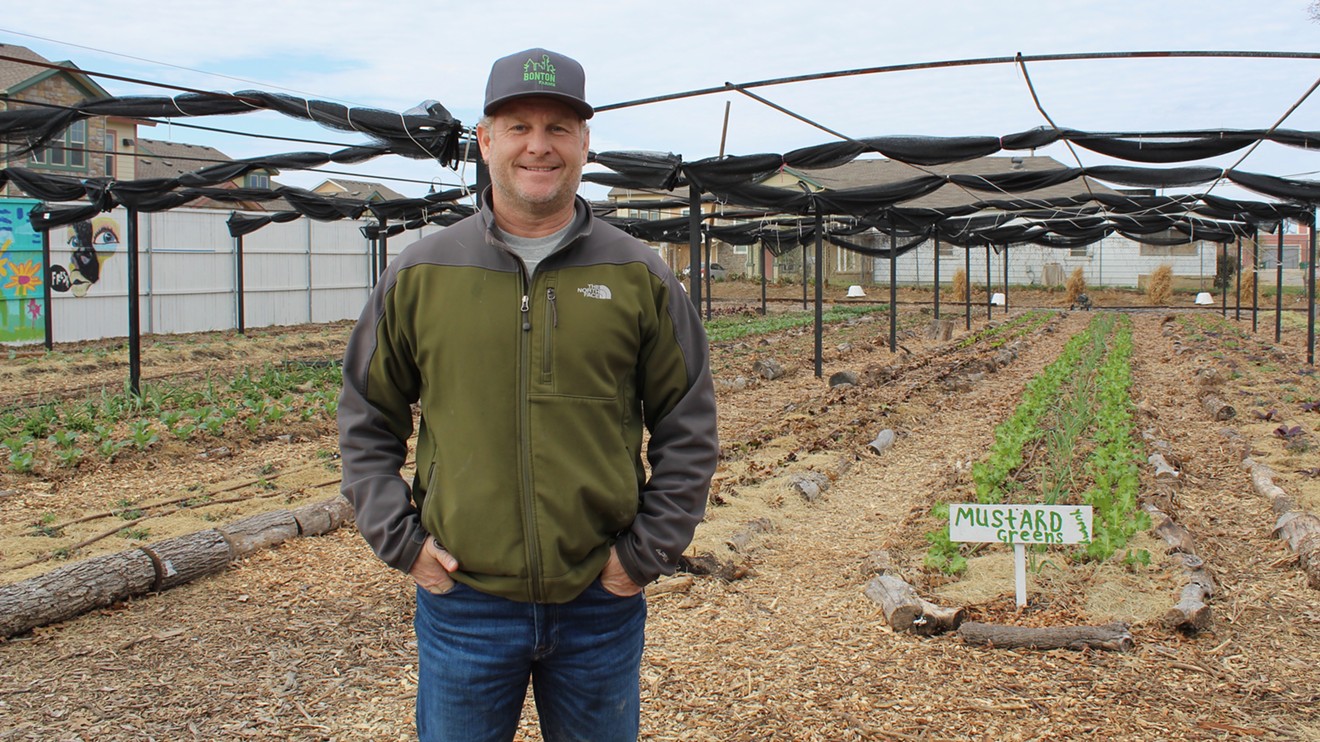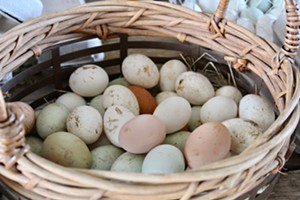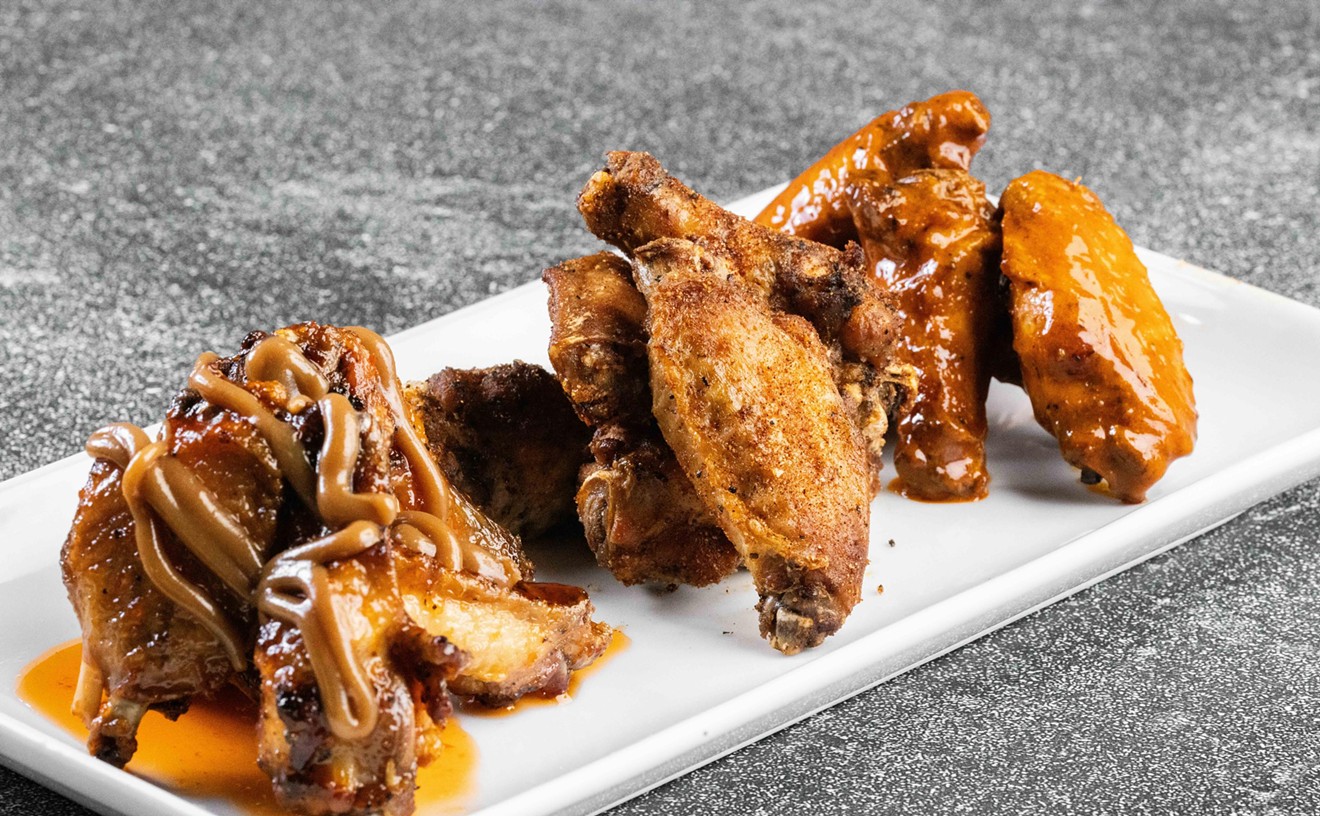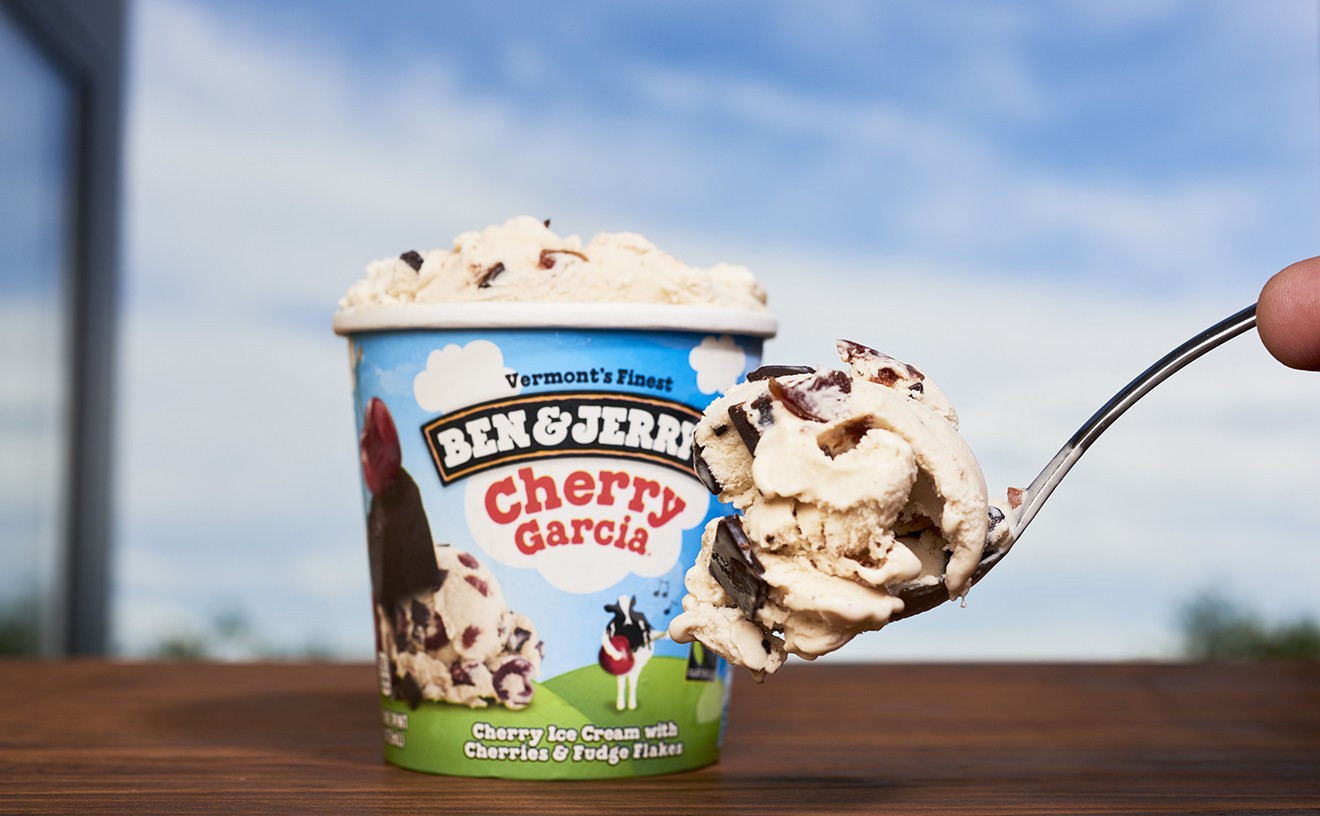When Daron Babcock prepared to jump into the farming business, he noticed one thing about his new neighborhood.
“When I moved down here, everybody around me was sick, like really sick,” he says. “Willy, who was one of the first guys I started working with, he was almost blind from diabetes; his sister had her leg amputated from diabetes. I’ve never been around people like that who are that sick.
“Then I found out — it’s a food desert.”
In a society where there’s virtually nothing trendier than the farm-to-table meal, Babcock has produced a successful farm in Dallas with ample vegetables, fruit trees and livestock. But he’s not in it for the trendiness. He’s in it for the neighborhood.
Bonton Farms started out in Babcock’s backyard in the South Dallas neighborhood that goes by the same name. Formally established in 2014, they now have a second location, “the big farm,” as he calls it, with more vegetables and animals, and a program for locals to get work experience on the properties.

Daron Babcock stands in front of "the big farm," where he grows and sells produce to the South Dallas neighborhood and also to Dallas chefs.
Taylor Danser
“I loved what I did, I was making a lot of money … I was telling everybody, ‘All I do is work and raise my kids,’ then it kind of struck me, ‘I’m not really home ever. How’d this happen?’” he says.
He started asking himself this question and talking with close friends about it when one of them told him to head to Bonton on Saturdays to help support community members, many of whom are in poverty and have re-entered society after serving time in prison.
So he headed south from his then-home in North Frisco.
“It just had the most profound impact on me, for a lot of reasons,” he says. “I was fascinated by their stories and their journey and their lives and how we were so much the same and yet so different at the same time. … They were fighting for their lives.”
After a few months of visits, he felt the two hours a week wasn’t enough.
“Ultimately, I couldn’t reconcile that. So I quit my job and moved down here,” he says.
As a resident, he experienced the neighborhood rather than just visiting. People were suspicious of him at first, he says, because he doesn’t fit the general demographic.

Bonton Farms has expanded substantially since its humble beginnings in Babcock's backyard. The farm currently sells produce to the neighborhood from inside this shed on their South Dallas property.
Taylor Danser
And he quickly grasped the concept of an urban food desert, defined by the USDA as an area where a grocery store is more than one mile away.
“Without any better ideas, we started a garden,” he says. “There was nothing better to do. People were sick and dying. Literally.”
This garden started in his yard, very basically, with some carrots that attracted the neighborhood kids. Babcock and the neighborhood learned together; before started Bonton Farms, he had never even gardened before.
“I learned everything from watching YouTube videos,” he says.
Habitat for Humanity saw what he was doing and gave him additional land. As he started growing the farm, Habitat wrote to the city of Dallas, which resulted in the city providing more land to him for the project, which is under the nonprofit umbrella of the Dallas Foundation.
“So we set out to do it and found out it was illegal to have a farm in the city,” he says. “You could have a community garden, but nothing that you sell anything to. For a year we worked through at City Hall to make it legal to have an urban farm.”
Now they’re selling about $4,000 worth of food monthly from under a shed.
“We have this Robin Hood approach where we try to sell to the highest profit-margin customer that we can, which we think are chefs, which is for two reasons: They’re willing to pay a pretty good price for really good food; secondly, they’re really low cost, a lot of them want to come down to get the food themselves,” he says. “We sell right now 70 percent outside the community, and 30 percent in. Our goal is to get that to 50-50.”
That’s where the most recent development of Bonton Farms comes in: a market and cafe.
“Most of our community buys food off food stamps, and we can’t take that out here; we’re qualified but you have to have equipment and printers,” he says.
Bonton Farms is currently selling everything in an equipment-unfriendly outdoor environment.
“Once we get the market, we’ll be able to take food stamps, and we think that’s the tipping point to get that balance in line. That’s our ability to serve them,” he says.
The market and cafe are in the works now, but they have always been part of Babcock’s plans. Statistics for health here are much worse than in the rest of the county, he says, and it will take time for food to make a difference in this part of South Dallas.
“It’s not just as simple as opening a grocery store, and now fresh food’s here,” he says. “We just have a lot of education that has to come with it. Our idea with the market is to do everything we can to cater to their needs in a way that over time will change the health trends.”

Babcock uses what he calls a "Robin Hood" model when selling his eggs. South Dallas residents pay $3 per dozen; for outsiders, it's $6 per dozen.
Taylor Danser
“I think that it’s really valuable for families to sit down and have a meal together. We’ve lost that here,” Babcock says. “So I want the market to, in some way, to bring that tradition back, so to do that, we’ll have a cafe for people to sit down and eat together.”
They’ll have prepared foods, as Babcock knows that two hours of cooking followed by cleaning isn’t entirely ideal for all families, especially with many parents relying on public transportation and working long hours in sometimes low-paying jobs. The cafe will be open for breakfast and lunch, but from about 2 p.m to the evening, it will be reserved for health and wellness programming.

Over the years, Bonton Farms has grown to include new land and livestock, like this goat named Riot.
Taylor Danser
Bonton Farms, 6905 Bexar St.












